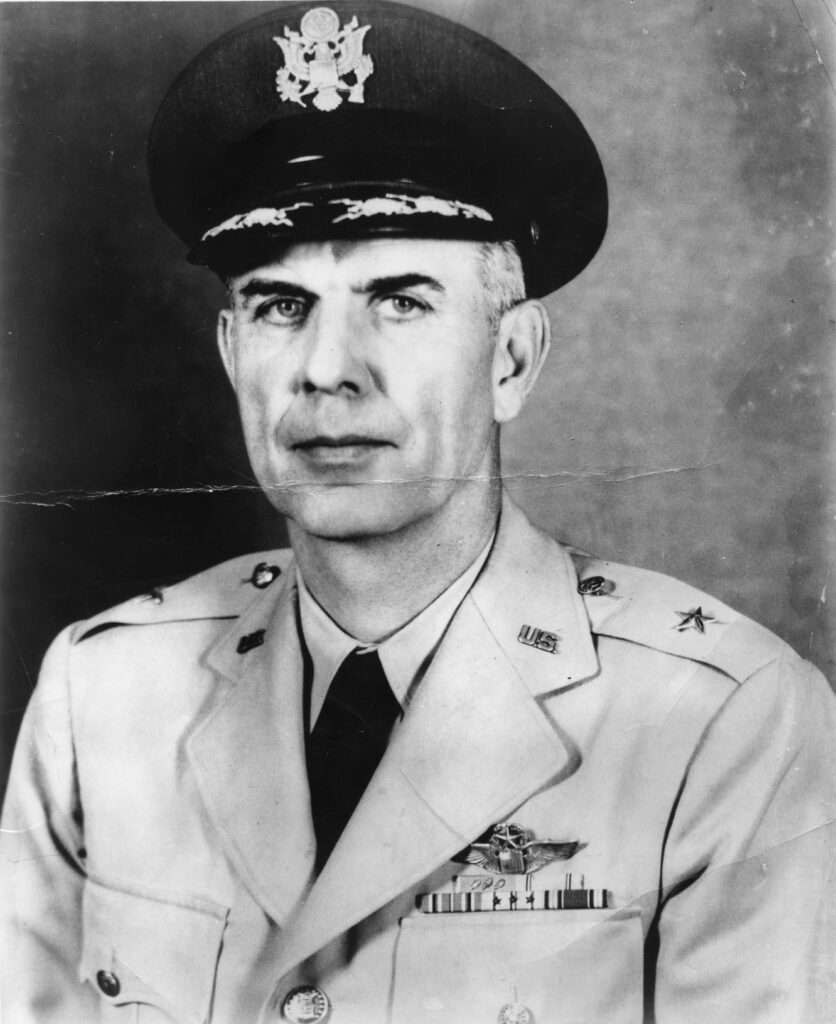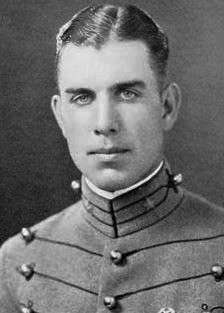Don Z. Zimmerman | A Military Luminary – Brigadier General Don Z. Zimmerman, a notable figure in military history, is best known for his significant contributions to both the United States Army and the United States Air Force. His career, marked by distinguished service, pioneering efforts in meteorology, and educational leadership, exemplifies dedication and innovation in military operations.
Key Takeaways
- Brigadier General Don Z. Zimmerman: A distinguished figure in both the U.S. Army and Air Force.
- West Point Graduate: Sixth in his class, initially joining the Corps of Engineers, then transitioning to the Army Air Corps.
- Pioneer in Meteorology: Notably contributed to the field of meteorology in military applications.
- World War II and Korean War Service: Played crucial roles in these conflicts, including weather service organization and strategic planning.
- Educator and Innovator: First Dean of Faculty at the U.S. Air Force Academy, shaping its curriculum.
Birth and Early Years in Eugene, Oregon
Brigadier General Don Z. Zimmerman’s story begins in Eugene, Oregon, where he was born in 1903. This picturesque city, known for its natural beauty and vibrant cultural scene, provided the backdrop for Zimmerman’s early life. Growing up in Eugene, Zimmerman would have been exposed to a community rich in educational opportunities and a strong sense of local history.
Eugene’s Influence
Eugene, nestled in the Willamette Valley, is not only a hub for outdoor activities but also a place with a strong emphasis on education. The city’s environment likely played a role in shaping Zimmerman’s early interests and values, particularly his dedication to academic excellence and leadership.
University of Oregon Years
Zimmerman’s academic journey took a significant turn when he entered the University of Oregon at the young age of 15 in 1919. This early admission to the university underscores his exceptional intellectual abilities and determination.
Academic and Extracurricular Achievements
While at the University of Oregon, Zimmerman distinguished himself not only in academics but also in various extracurricular activities. His involvement in the ROTC (Reserve Officers’ Training Corps) program at the university was a critical step in his military career. Additionally, his participation in sports like basketball and baseball reflects a well-rounded personality, combining physical prowess with intellectual acumen.
ROTC and Early Leadership
Zimmerman’s role in the ROTC at the University of Oregon was more than just a student participant; he was a leader, eventually becoming the cadet colonel. This experience provided him with early leadership training, laying the groundwork for his future military career.
Zimmerman’s Early Character Traits
From his early years in Eugene through his time at the University of Oregon, several key character traits of Zimmerman began to emerge:
- Intellectual Curiosity: Zimmerman’s early admission to the University of Oregon indicates a keen intellect and a thirst for knowledge.
- Leadership Skills: His involvement in ROTC and sports, often in leadership roles, hints at his natural leadership qualities.
- Resilience and Determination: Zimmerman’s ability to balance rigorous academic pursuits with extracurricular activities demonstrates resilience and a strong work ethic.
Early Life and Military Beginnings
Zimmerman’s journey in the military began with his graduation from West Point in 1929, where he stood sixth in a class of 299. Initially commissioned in the United States Army Corps of Engineers, he soon found his calling in the skies, transitioning to the United States Army Air Corps in the same year. His early assignments included training at various Air Corps schools, leading to a distinguished career as a pilot and meteorologist.
A Close Call and A Turn to Meteorology
In 1931, Zimmerman had a near-fatal accident while practicing dive bombing in a Thomas-Morse O-19. This incident, which resulted in only minor injuries but had a lasting impact on his voice and appearance, marked a turning point in his career. Post-recovery, he pursued a Master of Arts in meteorology at the California Institute of Technology, laying the groundwork for his future contributions to military weather forecasting.
World War II Contributions
During World War II, Zimmerman’s expertise in meteorology proved invaluable. He was instrumental in organizing the weather service for the U.S. Army Air Forces, providing critical support for various military operations. His role extended beyond meteorology, involving strategic planning and execution in key operations like the capture of the Marshall Islands. Zimmerman’s innovative approach and use of meteorological data played a pivotal role in the success of these operations.
Leadership at the United States Air Force Academy
Post World War II, Zimmerman’s career took a turn towards education. He became the first Dean of Faculty at the newly established United States Air Force Academy in 1954. In this role, he was responsible for shaping the curriculum and selecting the teaching staff, focusing on a balanced approach between humanities and scientific subjects.

Post-Military Career and Legacy
After retiring from the Air Force in 1958, Zimmerman continued to contribute his expertise as a consultant for Boeing. He passed away in 1983, leaving behind a legacy of innovation, leadership, and dedication to both the Army and Air Force.
Additional Resources and References
Zimmerman’s Role in Military Meteorology
Zimmerman’s pursuit of a Master’s degree in meteorology at the California Institute of Technology was more than just an academic endeavor. It was a pivotal step in his career, leading him to become a leading figure in military meteorology. His groundbreaking work in weather forecasting was not only crucial for air operations but also for strategic military planning during World War II. He was appointed as the director of weather for the Army Air Forces and the U.S. Army early in 1942, playing a key role in organizing the weather service for World War II.
Leading the Way at the United States Air Force Academy
Perhaps one of Zimmerman’s most enduring legacies is his role as the first Dean of Faculty at the United States Air Force Academy. Appointed in 1954, Zimmerman was instrumental in establishing the academy, shaping its curriculum, and selecting its teaching staff. He envisioned a balanced educational approach, dedicating equal hours to humanities and social studies as well as scientific subjects. This approach was a departure from the traditional focus at West Point, reflecting Zimmerman’s belief in a well-rounded military education.
Innovation in Curriculum
Under Zimmerman’s leadership, the Air Force Academy’s curriculum was crafted to equip cadets with a broad spectrum of knowledge, blending technical skills with an understanding of social and cultural contexts. This holistic educational philosophy aimed to produce not just skilled airmen but also well-informed leaders.
Frequently Asked Questions (FAQs)
- What was Don Z. Zimmerman’s early career like in the military?
- Zimmerman started his military career as a second lieutenant in the United States Army Corps of Engineers after graduating from West Point. He then transitioned to the Army Air Corps, where he pursued his passion for flying and meteorology.
- How did Zimmerman contribute to military meteorology?
- He played a pivotal role in organizing the weather service for the U.S. Army Air Forces during World War II. His work in meteorology was critical for strategic planning and air operations.
- What was Zimmerman’s role at the U.S. Air Force Academy?
- As the first Dean of Faculty, Zimmerman was responsible for the development of the academy’s curriculum, emphasizing a balance between humanities, social studies, and scientific subjects.
- Did Zimmerman receive any recognition for his service?
- Yes, he was awarded the Legion of Merit for his service during World War II and had other decorations, including the Distinguished Service Medal.
- What happened to Zimmerman after his military career?
- Following his retirement from the Air Force in 1958, he worked as a consultant for Boeing and continued to contribute his expertise in various capacities.
Brigadier General Don Z. Zimmerman’s career in the United States Army and Air Force marked him as a pioneer in military meteorology and an influential figure in military education. His contributions, particularly in shaping the United States Air Force Academy, have left a lasting impact on the training and development of Air Force personnel. His legacy continues to inspire generations of military leaders and educators.
For more detailed information about Brigadier General Don Z. Zimmerman, you can visit his Wikipedia page and the Air Force biography.

